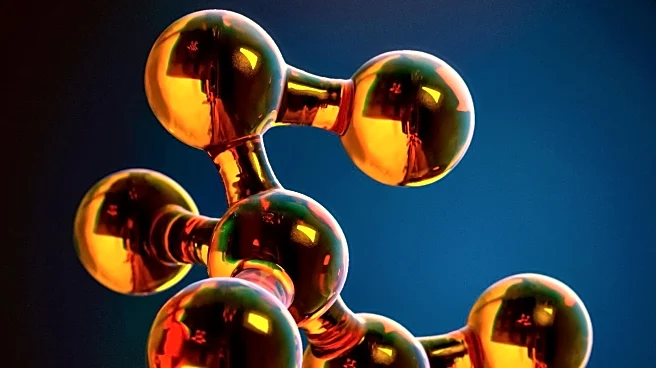What's Happening?
A study has investigated the antiviral properties of Corchorus olitorius fixed oil loaded into PLGA/PCL nanoparticles against the HSV-1 virus. The research involved extracting oil from Corchorus olitorius seeds and incorporating it into nanoparticles using
an emulsion solvent evaporation process. The optimized nanoparticle formula demonstrated desirable characteristics such as small particle size and high entrapment efficiency. In vitro tests showed promising antiviral activity against HSV-1, supported by network pharmacology analysis. The study highlights the potential of using plant-based compounds in nanoparticle formulations for antiviral applications.
Why It's Important?
The development of effective antiviral treatments is crucial in combating viral infections like HSV-1. This research offers a novel approach by utilizing plant-based compounds in nanoparticle formulations, which could lead to more effective and targeted therapies. The findings have implications for the pharmaceutical industry, potentially influencing the development of new antiviral drugs. The study also underscores the importance of interdisciplinary research, combining pharmacology, nanotechnology, and network analysis to address complex health challenges.
What's Next?
Further research is needed to explore the clinical applications of these nanoparticles and their efficacy in vivo. The study may lead to collaborations between researchers and pharmaceutical companies to develop new antiviral treatments. Regulatory approval processes will be crucial for advancing these findings into practical therapies. Future studies might focus on optimizing the formulation and exploring its effectiveness against other viral infections.















